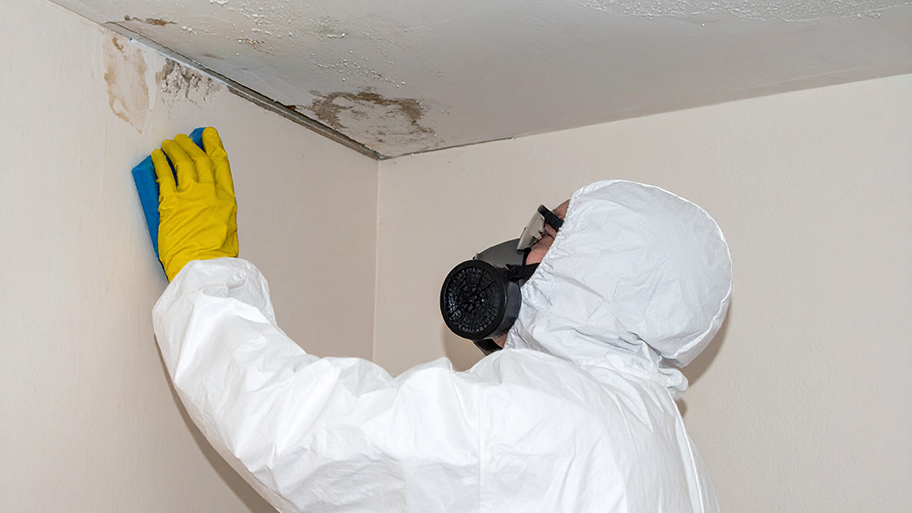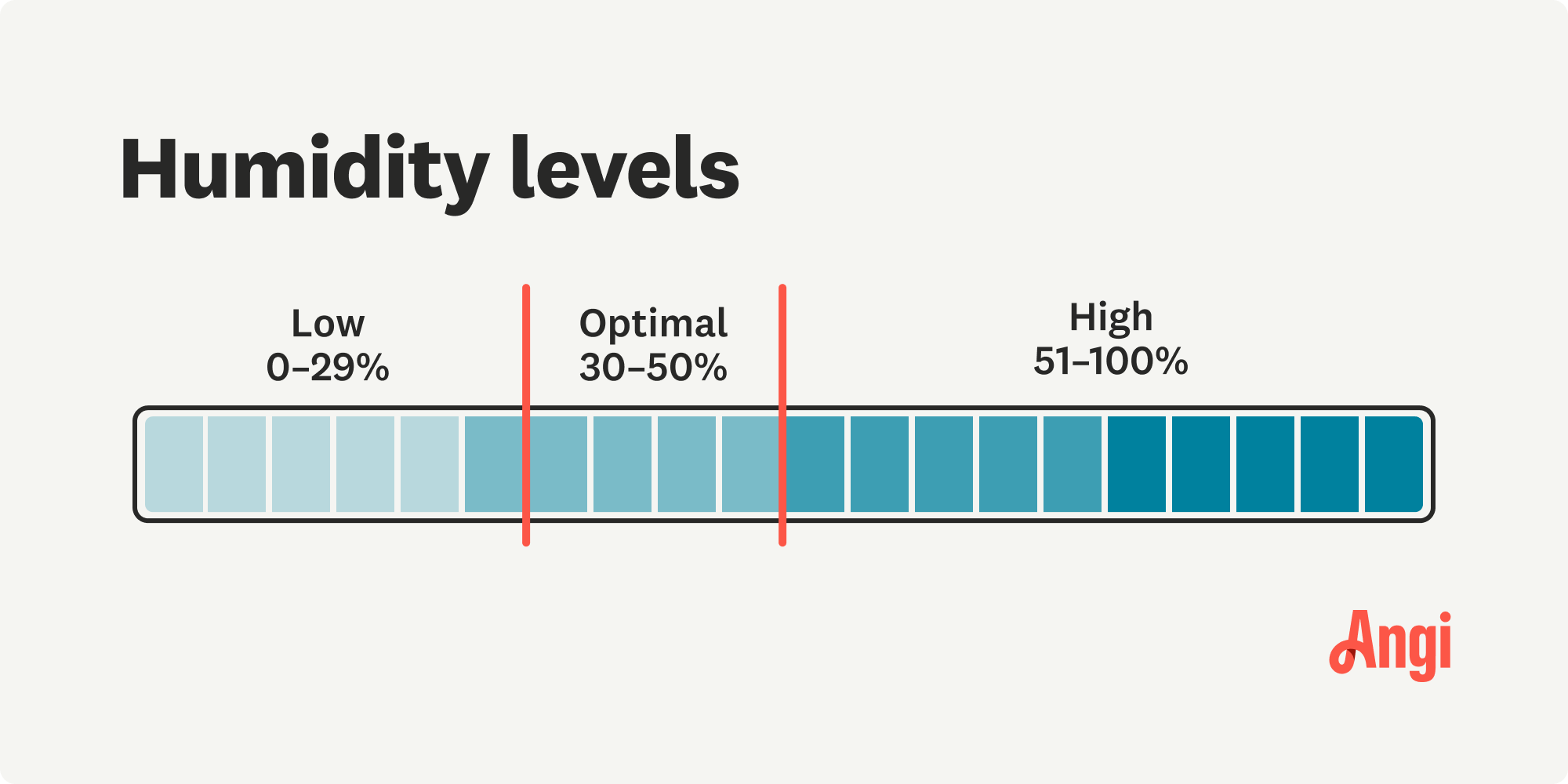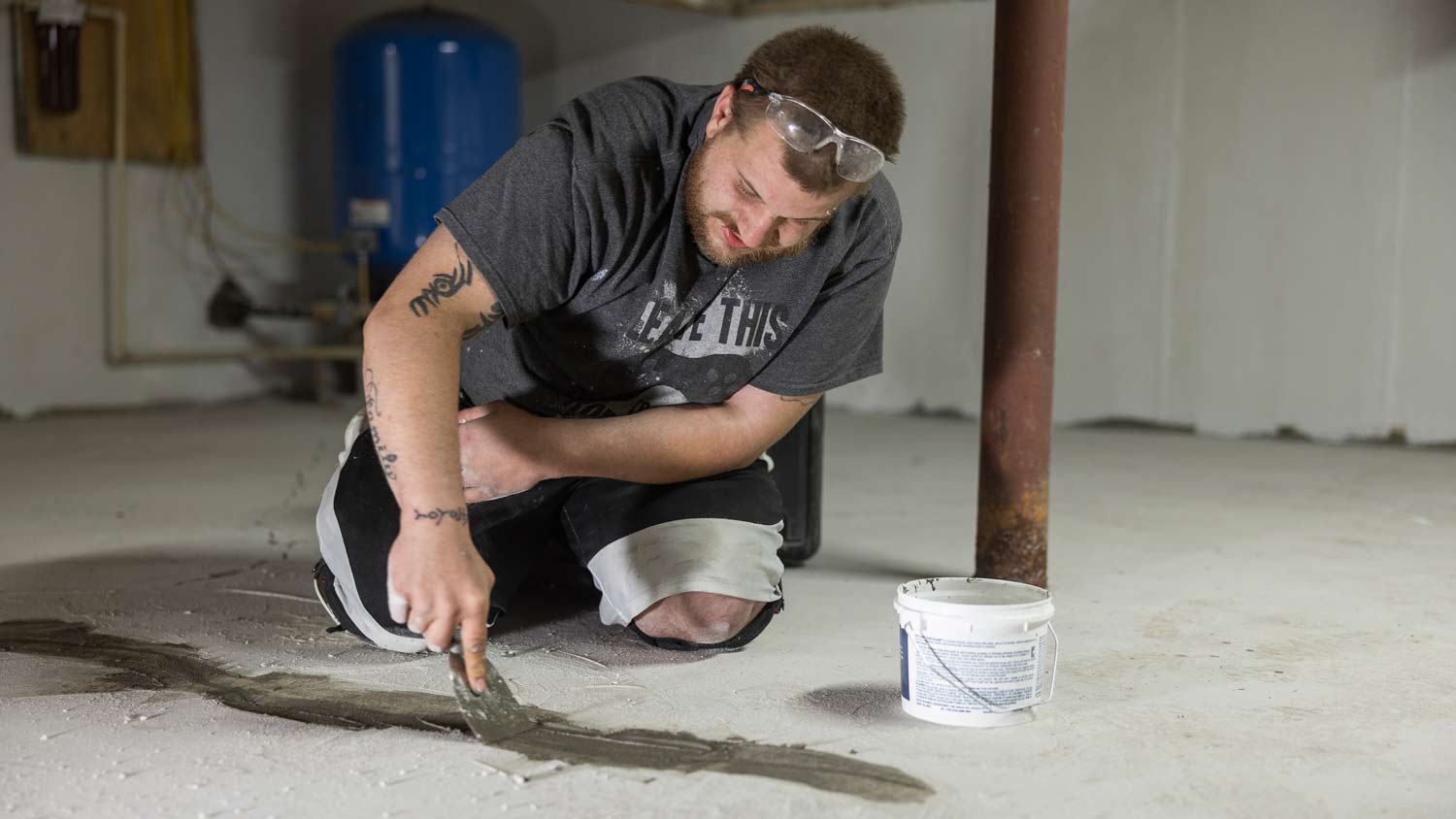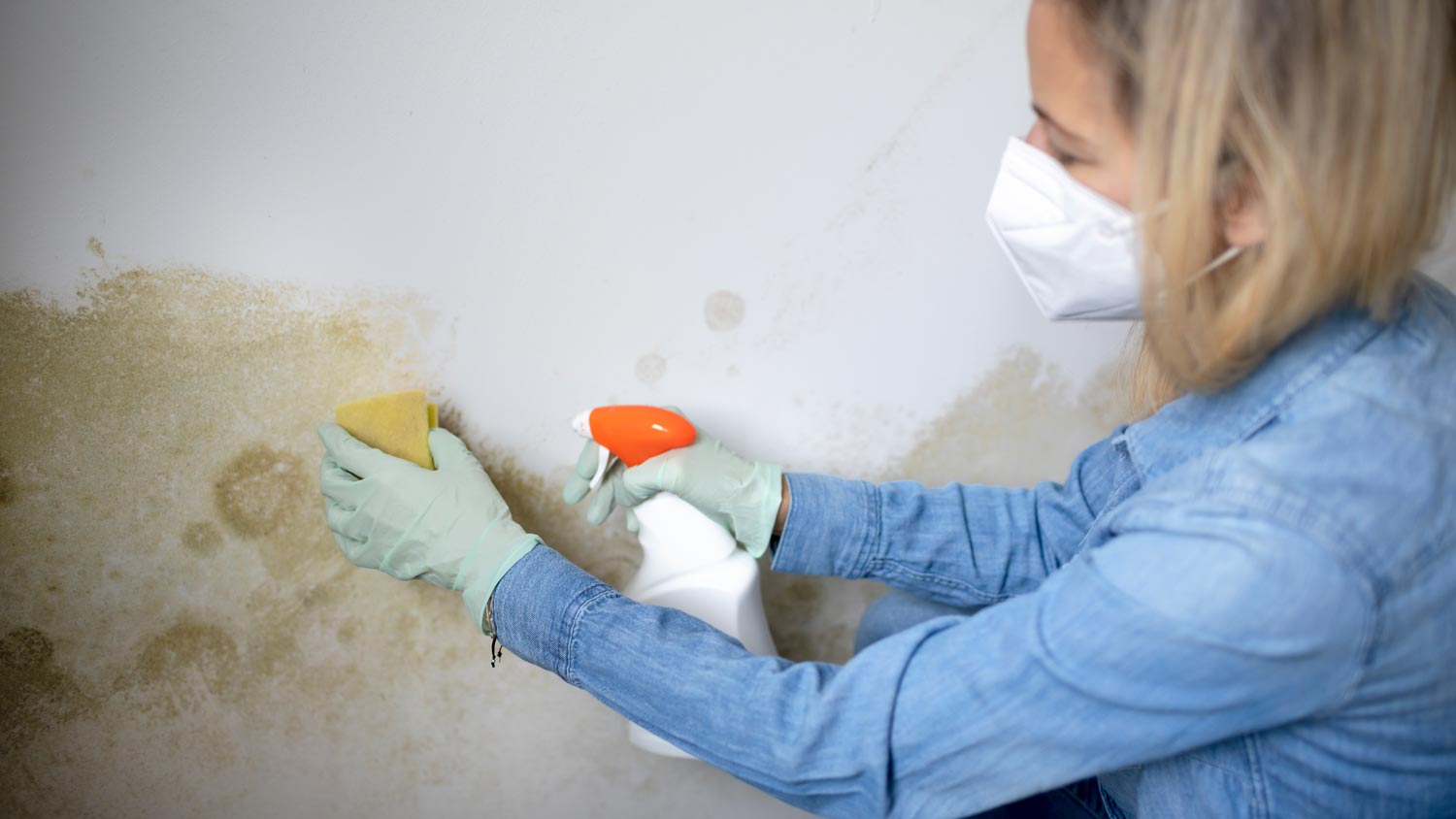
Mold remediation cost can quickly escalate. But if you have mold in your home, the cost for mold remediation is worth it.
Stop mold before it becomes a major problem


The basement serves as a significant battleground in the fight against household mold. As a below-ground space, basements are particularly susceptible to dampness and poor ventilation, creating an environment conducive to mold growth. However, when you know how to prevent mold in your basement, you can create a dry, well-ventilated space that resists the conditions favorable to mold development. Use this guide to learn practical tips for effectively preventing mold in a basement.

To control and monitor moisture levels in your basement to prevent mold growth, use a dehumidifier to maintain your humidity level below 60%, with the goal of keeping it between 30% to 50%. For maximum efficiency, be sure to empty and clean your dehumidifier regularly. Knowing how to measure humidity in your home is crucial, and can be done easily with a hygrometer.
Effective basement ventilation and mold prevention can be achieved through a combination of natural and mechanical methods. One approach is to install exhaust fans in areas of high humidity to remove moist air from the basement. During dry and warm weather, it's beneficial to use natural ventilation via windows and doors.
Window fans or air exchange systems can further improve air circulation. A consistent flow of air can be maintained by placing fans strategically to prevent the buildup of stagnant, moisture-laden air.

To maintain a waterproof basement and prevent mold growth, begin by conducting a thorough examination of the walls and floors to identify and seal any cracks or gaps that could lead to water penetration. Use waterproof sealant or paint to protect basement walls and provide a barrier against dampness. Vigilantly check for plumbing leaks and promptly address them to ensure they do not cause any damage.
Proper insulation and temperature control not only discourage mold growth by decreasing moisture condensation, but also create an unfavorable environment for mold to thrive in the basement. This can be achieved by insulating your basement walls to regulate the temperature and avoid condensation. Make sure that windows and doors are tightly sealed to minimize heat exchange with the outside.
Consider using space heaters or integrating the basement into the central heating system to maintain a stable temperature. Ensure you regularly monitor and adjust the thermostat settings to prevent extreme temperature changes.
To prevent the growth of mold in a basement, it is crucial to use mold-resistant materials. Such materials create an environment that is unsuitable for fungal development by preventing moisture absorption and inhibiting the growth of mold on their surfaces. These materials often contain antimicrobial agents that actively discourage the colonization of mold spores. Choosing moisture-resistant paints for walls and ceilings provides an extra layer of protection.

To prevent the growth of mold, it is important to maintain a clean and organized basement. Begin by cleaning all surfaces using a mold-killing detergent and focusing on moisture-prone areas. Vinegar, baking soda, or hydrogen peroxide are effective natural mold killers. Get rid of any items that have been damaged by mold, such as cardboard boxes and porous objects that can harbor mold spores. If you spot small signs of mold, learn how to get rid of mold in the basement to remedy it on your own.
Keep the space dust-free by vacuuming regularly to prevent potential mold food sources. Organize belongings by using shelves or storage racks to increase airflow and discourage mold growth. Ensure that the basement is well-lit to inhibit the growth of mold in dark corners.
Maintaining cleanliness in outdoor areas surrounding your home is essential in preventing mold growth in your basement. To do this, ensure proper drainage by regularly cleaning gutters and downspouts. Keep your landscaping trimmed and maintained to minimize shaded and damp areas where mold thrives. Make sure that water flows away from the house by properly grading around the foundation. Regularly inspect and repair any outdoor plumbing fixtures, such as faucets and hoses, to prevent leaks that could introduce moisture.
The installation of a sump pump can serve as a proactive measure to prevent mold growth in a basement by effectively managing water accumulation. By strategically placing the sump pump in a pit, any excess water that seeps into the basement can be collected. The pump activates once the water level reaches a certain point, expelling the water away from the foundation and preventing any moisture buildup.
The swift removal of water by a sump pump reduces the risk of flooding and dampness, ultimately creating an environment less conducive to mold growth. This approach is particularly key in areas with heavy rainfall or high water tables, as it helps keep the basement dry and free of mold.
To prevent mold growth in a basement, consider hiring a local mold remediation specialist to perform regular inspections. These experts possess the knowledge and skills necessary to identify potential sources of mold, moisture problems, and hidden areas that are vulnerable to fungal growth. By conducting routine inspections, they can quickly identify early signs of water damage, leaks, or humidity concerns and take appropriate measures to address them, preventing the conditions that favor mold growth.
Mold remediation specialists can also offer advice on improving ventilation, insulation, and moisture control, which can help homeowners implement effective preventative measures. If mold is present, you can expect to pay between $1,125 and $3,345 for mold remediation cost.
By being proactive, homeowners can nip potential mold problems in the bud to prevent extensive damage and foster a healthy, mold-resistant environment in their basements.
According to data from Angi customers, most people (35.2%) need mold removed from their interior walls or ceiling, and 21.5% need mold removed from a basement or crawl space. Mold is commonly found in rooms that see a lot of moisture, so keep a lookout in your bathroom, kitchen, and basement. Call a pro as soon as you notice signs of mold to keep a small growth from becoming a much bigger problem.
From average costs to expert advice, get all the answers you need to get your job done.

Mold remediation cost can quickly escalate. But if you have mold in your home, the cost for mold remediation is worth it.

The cost of a mold inspection might seem high, but it’s one of the best investments you can make for your health and home. Read on to learn cost-saving tips.

Seeing a patch of black mold on your wall is scary. Learning how to get rid of black mold and knowing when to call for a pro is easier when you follow our tips.

Tired of an unmistakable odor permeating your living space? Learn how to get rid of a mold smell in your house, and reclaim a clean and odor-free home.

When is mold remediation required at your home? We can help you decide whether the musty odor or the patch of mold you’re experiencing requires a pro’s help.

Acceptable moisture levels in drywall depend on the relative humidity in your home and a few other factors. Use this guide to learn what's okay and what's not.